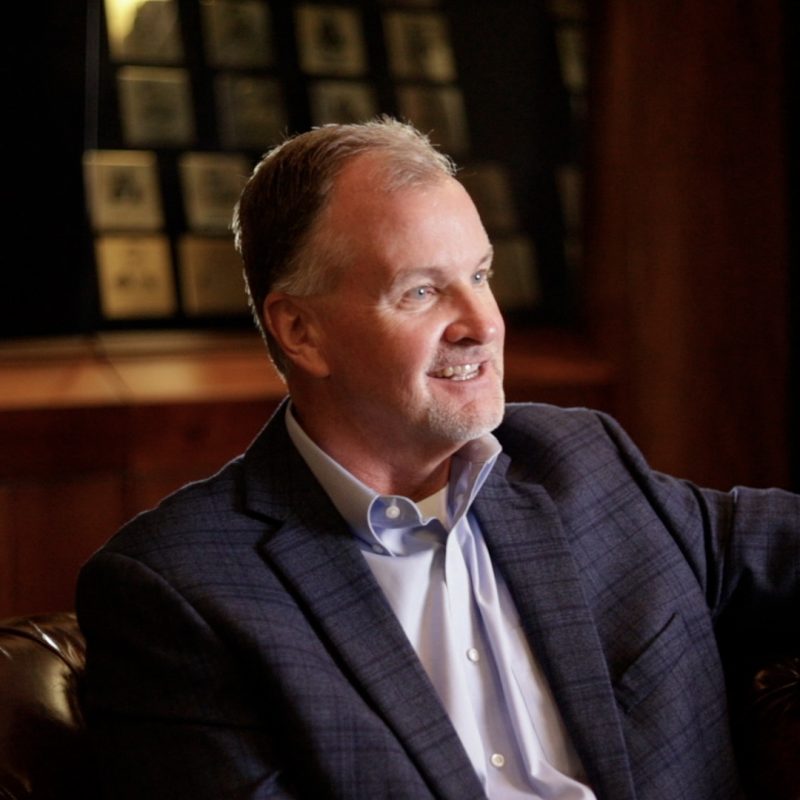By his own admission, Brent Burns is not a technologist. In fact, he admits, “I’ve never written a line of code.” But that has not stopped the 1986 Culverhouse graduate from leading major transformations in fintech software companies for the last twenty years, most recently as the CEO of Investment Metrics, which was acquired by Confluence Technologies in December of 2021.
By “transformations,” Burns explained, he means that he helped transform companies from founder-led to private equity-owned organizations. He praised the “great ideas, great heart, great passion” that many founders show, but also pointed out that founders often do not have the experience in transitioning from a smaller, owner-led model to a larger high-growth company that will eventually be acquired. “Many founders are comfortable in a smaller, easy to manage environment, where they can kind of control all things,” Burns said, but “you get to a point, especially in technology companies, where you are limited in how fast you can grow under that constrained model. There’s no way that one person can get their arms around everything in a high-growth tech firm.”
“Many founders are comfortable in a smaller, easy to manage environment, where they can kind of control all things,” Burns said, but “you get to a point, especially in technology companies, where you are limited in how fast you can grow under that constrained model. There’s no way that one person can get their arms around everything in a high-growth tech firm.”
Since his retirement in 2021, in addition to consulting for some private equity firms, Burns has been helping nonprofits understand how to be successful. His explanation is similar to his feelings about founder-led organizations: nonprofits often have “a great heart, and they’ve got a great purpose of what they want to do,” but they need help learning how to do things like raise money, put a board of directors together, and generally run a business. They need help; they need guidance; ultimately, they need mentorship.
Apart from his other work, Burns and his wife have been supporting charitable organizations that focus on kids who have encountered challenges in their early lives. In addition to supporting the Children’s Harbor at Lake Martin, they have focused time on organizations that help young adults graduating out of foster care. He explained that a lot of people do not think about what happens to a foster child when they turn 18: “after they hopefully graduate from high school, they many times have no one. There is nobody there to help pick those kids up, and take them, and mentor them from that point on.” And this is doubly unfortunate because many of these kids are “tossed on the streets.”
As a guest speaker in the Culverhouse Lowder Lecture Series last semester, Burns presented to students about “Eight Rules for Professional Success.” When asked about key takeaways later, perhaps unsurprisingly, one of Burns’ main lessons was about learning from others. “I always learned something from everybody I worked for, or worked with,” he said, whether the lesson was what to copy, or what to avoid. He also encouraged students and young professionals to develop and maintain a strong professional network, and to proactively take on more responsibility than they are comfortable with.
“I was lucky,” Burns reflected. “I had great parents, great mentors that helped guide me…But I know there’s a lot of kids who don’t have anybody that’s there giving them guidance and direction.” That is why it is so important, in Burns’ view, for students to have access to mentorship from alumni and older business leaders: “I think students enjoy hearing from someone that can talk about real-life experiences, real-life, as I call them, ‘battle scars,’ that will potentially keep them from having the same ones.”

